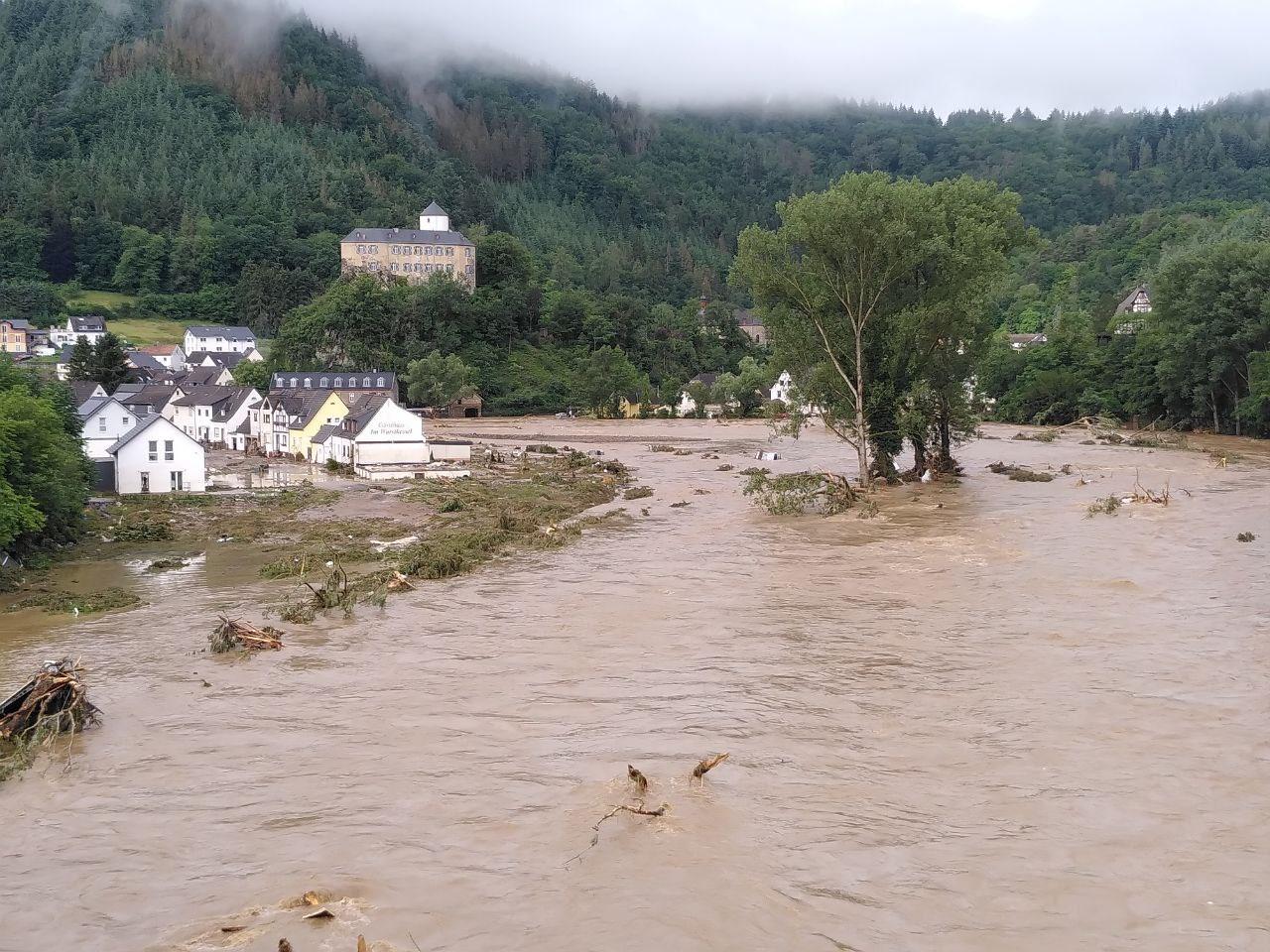Hundreds of people died from disastrous floods in Europe in 2021, despite scientists alerting the authorities days ahead. Reading hydrologists, who designed Europe’s flood warning system, spoke out immediately about the lack of action. This led to widespread discussion with politicians and the public through parliaments, media, and a major museum show, spurring better flood preparedness.
When catastrophic floods killed 243 people across Europe in July 2021, some politicians and media outlets incorrectly claimed the size of the floods had been impossible to foresee. In fact, the European Flood Awareness System (EFAS), designed by Reading hydrologists, had accurately forecast the disaster and scientists had alerted the authorities, days in advance.
The Water@Reading research team spoke out via media briefings and interviews explaining the science behind flood forecasting, generating hundreds of articles. Professor Hannah Cloke’s description of authorities’ ‘monumental system failure’ to warn people became front page news across Europe. Dr Liz Stephens explained how flood warnings should work, and Dr Jess Neumann described how intense summer rainfall caused the floods. PhD researcher Jeff Da Costa criticised the Luxembourg government’s response and lost his job at an environmental consultancy. His sacking led to questions in parliament and accusations of political interference and undue pressure on scientists.
The team’s expertise is influencing policy in Germany to keep people safe. Cloke twice gave evidence at German parliamentary inquiries assessing the disaster response. Germany now has a national mobile phone alert system for emergencies, an action called for by the Reading team.
Cloke’s ongoing commentary on better communicating forecasts, including in New Scientist, have propelled her to appear on BBC Radio 4’s The Life Scientific and to collaborate with the Science Museum on an exhibition, explaining flood forecasting to fresh audiences.
“Science fictional thinking [uses] imagination and creativity to visualise scientific problems, extrapolate outcomes, and perhaps develop solutions. We were instantly drawn to the work of Professor Hannah Cloke, who explores these topics and more in her work.” — Dr Glyn Morgan, Lead Curator, Science Museum exhibition
Project name: Dreaming of disaster: Using imagination to save lives in floods
Team: Hannah Cloke, Liz Stephens & Water@Reading research group
Partners
- European Centre for Medium-range Weather Forecasts
- Science Museum
Funders
- Natural Environment Research Council (NERC)

